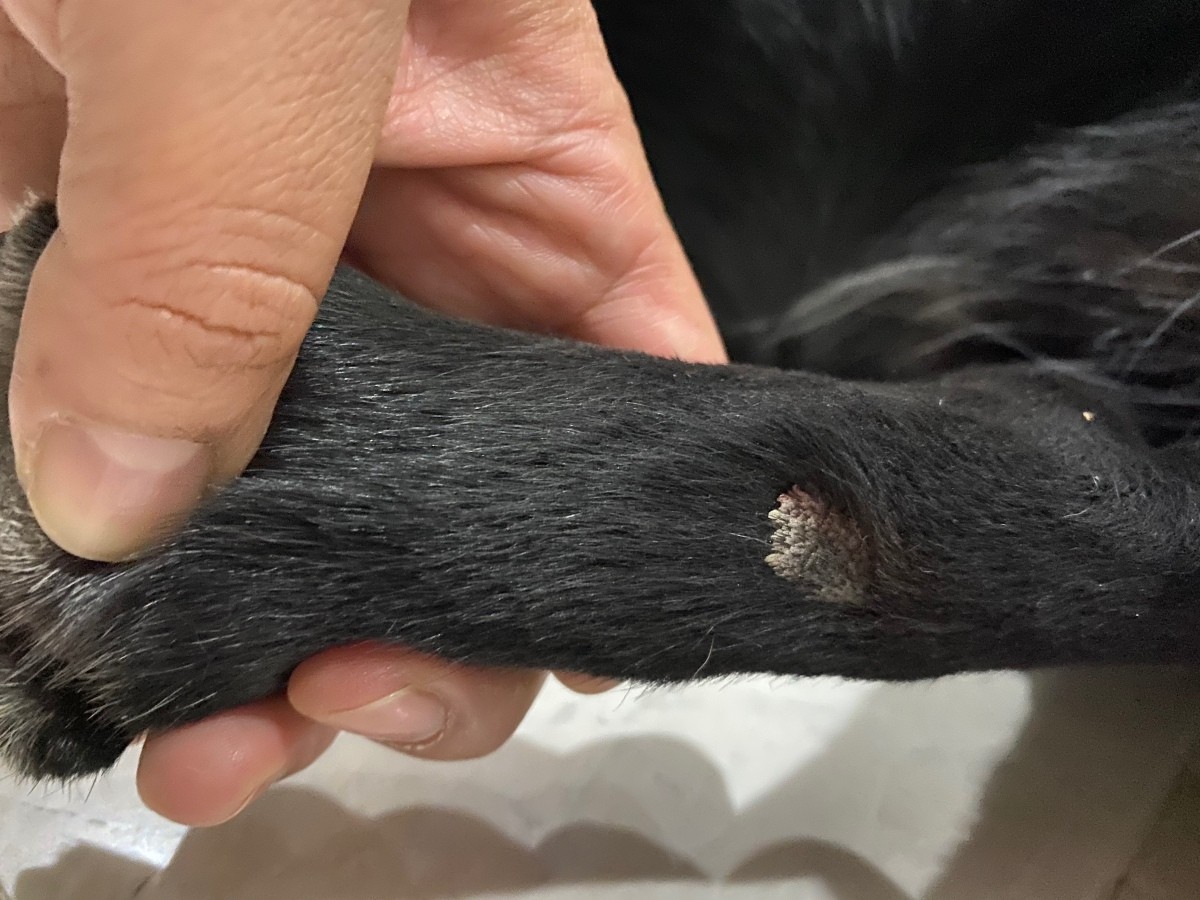Dogs, our beloved companions, deserve the best care we can provide. Ensuring their health and well-being requires attention to both their physical and emotional needs. Among the many health concerns that can affect our furry friends, dry skin is one of the most common, causing discomfort, itching, and even secondary infections if not properly addressed. In this comprehensive guide, we will delve into the causes and symptoms of dry skin in dogs and explore various effective remedies to restore their skin to its healthy glow.

Image: www.doglyness.com
Understanding Dry Skin in Dogs
Dry skin in dogs, also known as xerosis, occurs when the skin lacks sufficient moisture and becomes dehydrated. This can stem from various factors, both internal and external. Understanding the causes and symptoms of dry skin is crucial for developing appropriate treatment strategies.
Causes of Dry Skin in Dogs
-
Environmental Factors:
Prolonged exposure to cold, dry air, low humidity, or excessive wind can strip the skin of its natural oils, leading to dryness and irritation.
-

Image: www.aiophotoz.comNutritional Deficiencies:
A diet deficient in essential fatty acids, vitamins, and minerals can impair the skin’s barrier function and contribute to dryness.
-
Underlying Medical Conditions:
Certain medical conditions, such as hypothyroidism, allergies, and skin infections, can cause or exacerbate dry skin as a secondary symptom.
-
Grooming Habits:
Over-bathing or using harsh shampoos can strip the skin of its natural oils and protective layer, resulting in dryness and irritation.
Symptoms of Dry Skin in Dogs
-
Itching and Scratching:
Dry skin can cause intense itching and scratching, leading to redness and irritation.
-
Flaking and Scaling:
As the skin dries out, it may begin to flake and scale, giving the appearance of dandruff or peeling.
-
Redness and Inflammation:
Dry skin can become red and inflamed due to irritation and scratching.
-
Dull Coat:
The lack of moisture can lead to a dull and lackluster coat, losing its natural sheen.
-
Secondary Skin Infections:
Scratched and irritated skin can provide an entry point for bacteria and other microorganisms, increasing the risk of secondary skin infections.
Remedies for Dry Skin in Dogs
-
Diet:
Ensuring a balanced diet rich in omega-3 and omega-6 fatty acids, vitamins A, D, and E, and zinc can significantly improve skin health and reduce dryness. Consult a veterinarian for recommendations on a diet tailored to your dog’s specific needs.
-
Bathing:
Limit bathing to once a month or as recommended by your veterinarian, using a gentle, moisturizing shampoo specifically designed for dogs.
-
Moisturizers:
Applying a hypoallergenic moisturizer to dry areas of the skin can help restore moisture and relieve itching. Look for products specifically formulated for canine skin.
-
Omega-3 Fatty Acid Supplements:
Omega-3 fatty acid supplements can be beneficial for dogs with dry skin as they help nourish the skin from within, reducing inflammation and promoting a healthy skin barrier.
-
Coconut Oil:
Coconut oil has natural antibacterial and moisturizing properties, making it a soothing remedy for dry, irritated skin. Apply a small amount directly to the affected areas.
-
Apple Cider Vinegar:
The antibacterial and anti-inflammatory properties of apple cider vinegar can help alleviate itching and promote healing. Dilute apple cider vinegar with equal parts water and apply it to the skin with a cotton ball or spray bottle.
-
Oatmeal Baths:
Oatmeal baths have soothing and moisturizing effects on dry, itchy skin. Grind oatmeal into a fine powder and add it to your dog’s bathwater for a relaxing and therapeutic treatment.
How To Fix Dry Skin On Dogs
Conclusion
Dry skin in dogs can be a common concern, but with the right care and attention, it can be effectively managed. Understanding the causes and symptoms of dry skin is essential for developing appropriate remedies, ranging from dietary adjustments to soothing topical treatments. By following the tips outlined in this guide and consulting a veterinarian for additional recommendations, you can help keep your dog’s skin healthy, comfortable, and radiant for years to come. Remember, your furry friend deserves the best possible care, and a healthy skin is a vital part of their overall well-being.







